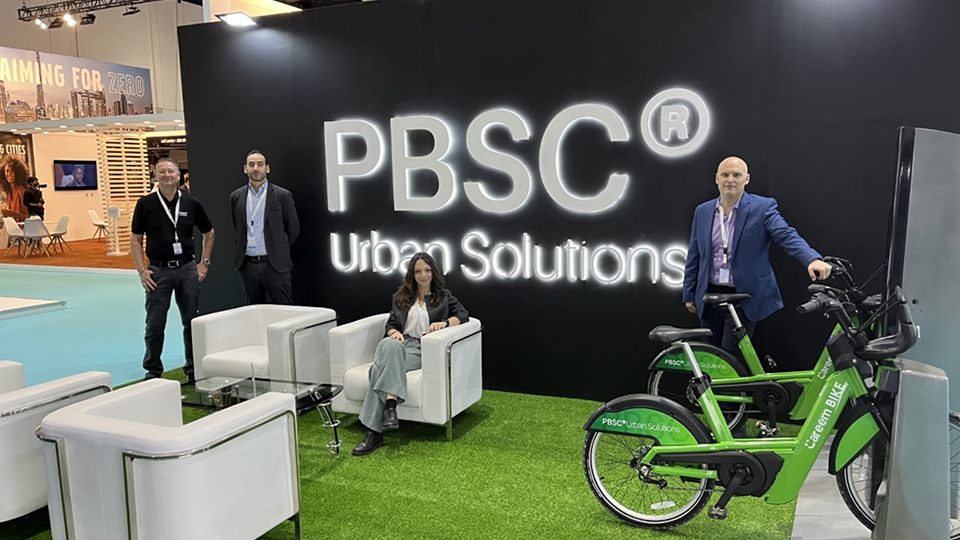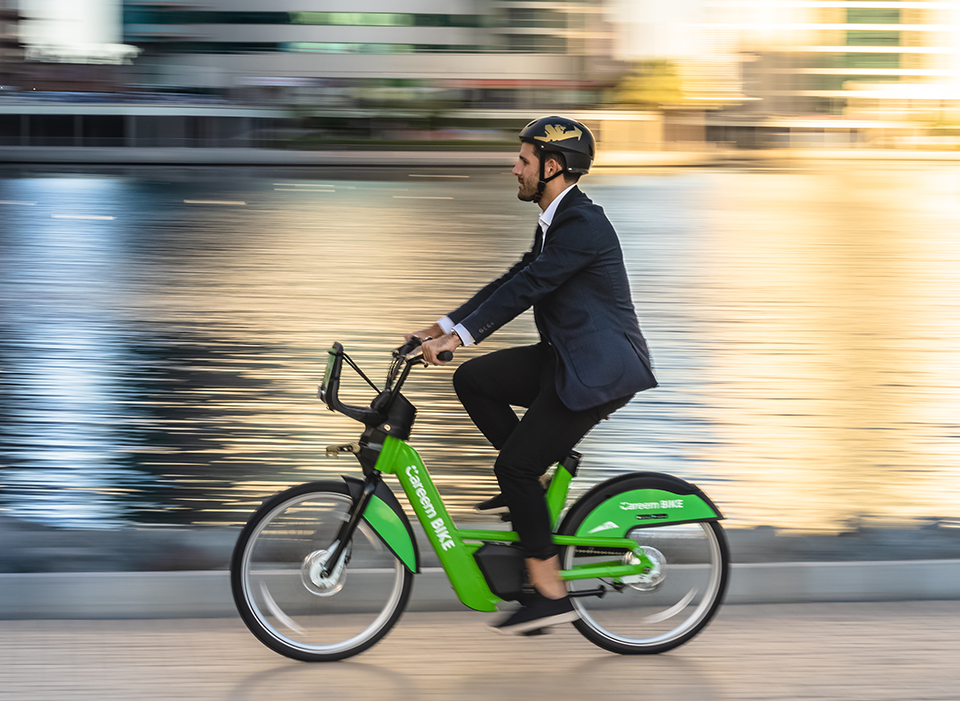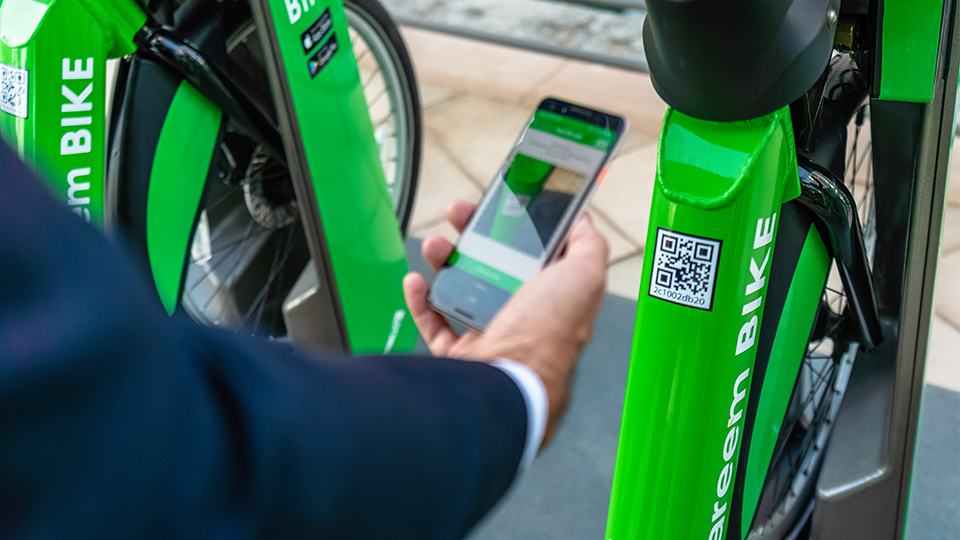
4 key takeaways from PolisMOBILITY 2024 Conference in Cologne
May 28, 2024 — Events & awardsPBSC arrives in Austin, Texas!
Learn moreEvents & awards
Building the Future of Mobility
The MENA Transport Congress & Exhibition is a biennial event that brings together experts from around the world to discuss the future of urban mobility through the lens of today’s rising trends and gathered research. Our world is constantly evolving, cities are growing faster, and faster and new challenges are emerging, which leads us to rethink the way we move. In this context, the discussions around mobility and, in particular, the role and impact of public transport and accessibility in our cities are dominant. Topics that have already been highlighted at the Dubai World Expo 2020.
The 2022 edition of the congress took place from February 6 to 8 in Dubai. This event, jointly organized by the International Association of Public Transport (UITP) and our partner, the Roads and Transport Authority (RTA), highlights the latest innovations and important developments in the industry. The objective is to promote public transportation in the Middle East and North Africa (MENA) regions and to showcase the latest innovations in sustainable urban mobility on the international stage.

Did you miss this year’s edition? Don’t sweat it – we’re here to bring you the highlights from the event:
The Covid-19 pandemic has caused us to rethink the way we travel and has had a huge impact on mobility in cities everywhere. New challenges have arisen, and this has called into question the role of urban transport and the safety of users in cities. In the early days of the pandemic, there was a dramatic shift in how daily commuters moved around the city. A lot of people transitioned to remote work settings and a great number of urbanites became hesitant to use public transport, such as buses or subways, to avoid contact with other people. In turn, we saw a tremendous increase in the use of shared micromobility solutions such as self-service bicycles and scooters, or the use of cars for personal use. From the need for an accessible alternative to personal cars to work-from-home culture promoting the need for exercise and active lifestyles, public bicycles became increasingly popular.

Intelligent and sustainable public transport modes now have a key role to play in combating the impacts of the pandemic – with proven benefits towards public health, economy and the environment. The growing demand for sustainable transport in cities is encouraging leaders and urban infrastructure planners to rethink and improve the services available to commuters. How can we make daily transit more accessible, more sustainable and safer for everyone? How can we promote public transport as an alternative to travel by car? These key questions echoed throughout the event. The answers? Here’s what resonated:
What better way to facilitate the travel of a urbanites than a multimodal integration of different modes of transportation? Multimodality is a trending topic in micromobility and urban transportation overall – but what does it mean? Multimodal integration in mobility consists of providing commuters with multiple transportation options (walking, biking, taking the bus, etc.), which can be combined at key locations in densely populated areas – “mobility hubs”. Thus, to make a trip from point A to point B, you can take a bicycle, then take the bus, then take another bicycle to complete your trip. In this case, it is essential for the city to set up infrastructures and services to encourage and facilitate this type of travel.

In the Middle East, and particularly in Dubai, multimodality is already well established. The Careem Bike bicycle sharing system, operated by our partner, allows the use of the bicycle as an option for the first and last miles of the average commute, thanks to the strategic placement of each station in the city. Careem Bikes operate as part of greater mobility hubs, each close in proximity to bus or metro stations and to the busiest places in the city. In addition, the city has many bicycle paths to encourage the use of bicycles and continues to grow its reserved paths. The objective in Dubai is all about implementing intelligent mobility.
In order to encourage commuters to opt for public modes of public transport in the city, it is essential to facilitate the services available to them and to simplify their journeys. Cities should be asking themselves - how can we provide access to all types of public transport as part of one, easy-to-use system? How can we improve connectivity between the different urban mobility solutions that we provide? This is where we see the emergence of MaaS (mobility as a service), a notion that means "all in one". This means setting up a mobility platform that integrates all mobility options. For example, can the average commuter rent a bike from the same app they use to check bus times or get train tickets?
This is what the city of Dubai has accomplished by creating a single application for public transport users, which integrates all mobility options and takes into account all of the average travelers' needs. With this app, it is possible to plan a trip by taking into account all of the city's urban transport options: public transport (metro, bus, streetcar), shared micromobility (bike share and scooter-share), car-sharing, and smart car rental.

Today, it is essential to consider environmental impact in our thinking and innovation. To enable cities around the world to implement innovations that have a positive environmental impact, we need to think about users first. How can we link the various urban transport operators to improve connectivity between modes of transport? How can we improve mobility infrastructure to encourage the use of public transport?
The pandemic has encouraged the world at large to rethink urban mobility, offering industry players the opportunity to propose more accessible, safer, cleaner and sustainable alternatives. This is particularly the case in the Middle East, where the transport options and modern mobility technologies, such as MaaS for example, are helping to reduce congestion in cities by curbing the use of cars. This also leads to a reduction in the region's CO2 emissions from road transport. The implementation of MaaS in the Middle East could therefore be an example to follow worldwide.
This year's MENA Transport Congress & Exhibition highlighted the challenges facing the urban mobility industry. The various players in the MENA region highlighted their innovations and developments as well as the key role of urban public transport. This will inspire the international scene.
Thank you to UITP and RTA for organizing this edition 2022!
To learn more about PBSC's global impact, smart cities, or to get industry news and updates on technologies and events, sign up for the PBSC newsletter today.

Interested in becoming a local operator or establishing bike sharing in your city?
Contact us at info@pbsc.com